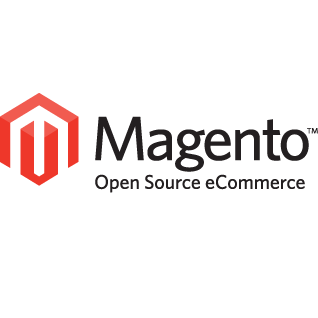Magento Community Review



Curious about how other ecommerce platforms measure up? Check out reviews of top ecommerce platforms here.
Magento is the most well known and used brand in the ecommerce platform arena, but the Magento experience depends entirely on the program you choose. We reviewed the Magento Go platform in June and found that it’s developmental immaturity and scale made it best fitted for small online retailers.
Medium- and even enterprise-level retailers will find that Magento Community and Enterprise best fit their needs. But what’s the difference? Retailers absolutely need to know 3 primary, fundamental differences when it comes to comparing Magento Community vs. Magento Enterprise.
1) Software features: Open source software vs. Complete ecommerce solution – Magento Community is completely open-source, meaning you have full access to the developmental code. This is only great, however, if you have staff on hand with extensive, expert-level web development/programming experience.
As with most things, you get what you pay for. Enterprise, on the other hand, has all the features Community comes with PLUS more advanced online store features like advanced marketing (loyalty programs, custom coupons, gift registry, store credit/online gift cards, segmentation tools), PCI compliant code, full page caching, support from multiple servers, enhanced tax calculation, faster checkout, customer attribute database, return management system, automated email messaging, Solr search, automatic upselling, customer-assisted shopping, and more.
That’s probably the most advanced ecommerce feature-set you’ll get built-in from any platform out there.
2) Pricing: Free vs. Minimum of $15,550/year – Free vs. an average of $1295.83 per month? Most will look at those figures and immediately question the overall value of Enterprise. No doubt, Enterprise is superior to Community (feature-wise) in every way, but the cost will come down to basic need and programming ability. Retailers who already get a lot of traffic, have upwards of 15,000 products, and consistently sell many of those products a day may find that Enterprise is the way to go.
Differences aside, neither Community nor Enterprise offer hosting, so in both cases you’ll have to pay for extra if you don’t already have this. Magento has several recommended hosting partners.
3) Customer Support: No technical support vs. Premium technical support – Plain and simple, you are on your own with Community. The only support you will get with the free software is from fellow Community users. The Magento Forum is the only place you can go for help with troubleshooting, bugs, coding, or general technical advice.
Contrarily, Magento Enterprise provides support for installation, usage, configuration, and troubleshooting. However, despite all you’re paying for Enterprise, they will not help with coding, site optimization, anything custom, data migration, or give advice on best practices.
For the sake of this review, we will focus on Magento Community.
Used by over 125,000 online stores and powering 26% of the Alexa Top 1 Million sites, Magento Community is a big deal in ecommerce. You’ll probably think to yourself, “What’s the difference between Magento and the likes of other open-source solutions like CS-Cart and PrestaShop if they’re all so customizable and they all have hundreds of extensions available?” Well, the reality is that the user-experience with open-source software differs greatly by the customer/technical support made available, the user-interface, and the amount of built-in functionality.
All 3 solutions are geared for tech-savvy retailers of any size. For some perspective, if PrestaShop is the baseline, CS-Cart offers a more stress-free user-experience (easy installation, great interface) and Magento provides exceptional functionality. At the end of the day, Magento Community will distinguish itself from other open-source software with its high power and functionality best-suited for retailers with high traffic and large inventory.
Ideal for: Upper tier, middle-sized retailers as well as large retailers
You can view a comparison of key Magento plan features (including Magento Community) here.
Sure, Magento Community is not going to look elite next to Magento Enterprise, but that should not cloud the fact that Community is still one of the most capable open-source software solutions on the market. Ultimately, your success with Magento Community is going to be determined by your accessibility to highly skilled web developers and your vision for the potential of your store.
The reality is that a retailer could technically create an online store similar to the robustness and sophistication of an Enterprise store using Community by purchasing extensions and having great programmers. The multitude of extensions will be expensive, but it’s better than paying a huge annual licensing fee.
Though it has a high barrier to entry (for optimal potential), Magento Community provides a highly capable and sophisticated ecommerce experience.
View the master list of our ecommerce platform comparison to make the most informed choice when choosing your ecommerce platform software.
How do you think this shopping cart stacks up against the rest? Have your voice be heard and your opinion known! Email [email protected] and request to have your experience be part of this Magento Community Review.
*Note: Grades are subjectively based on analysis and comparison to other ecommerce platforms, based on availability, significance, and functionality of the platform feature and overall value.
